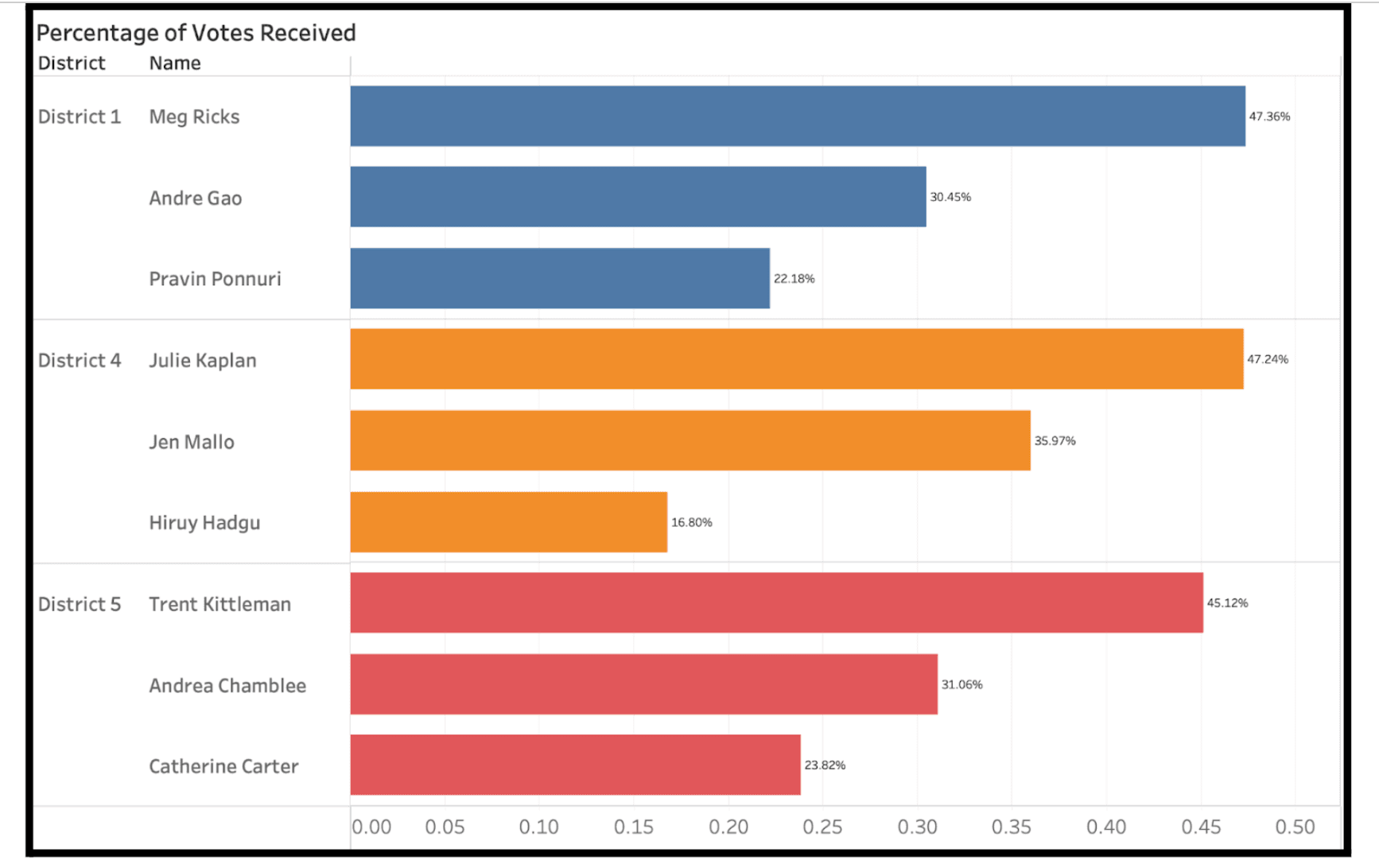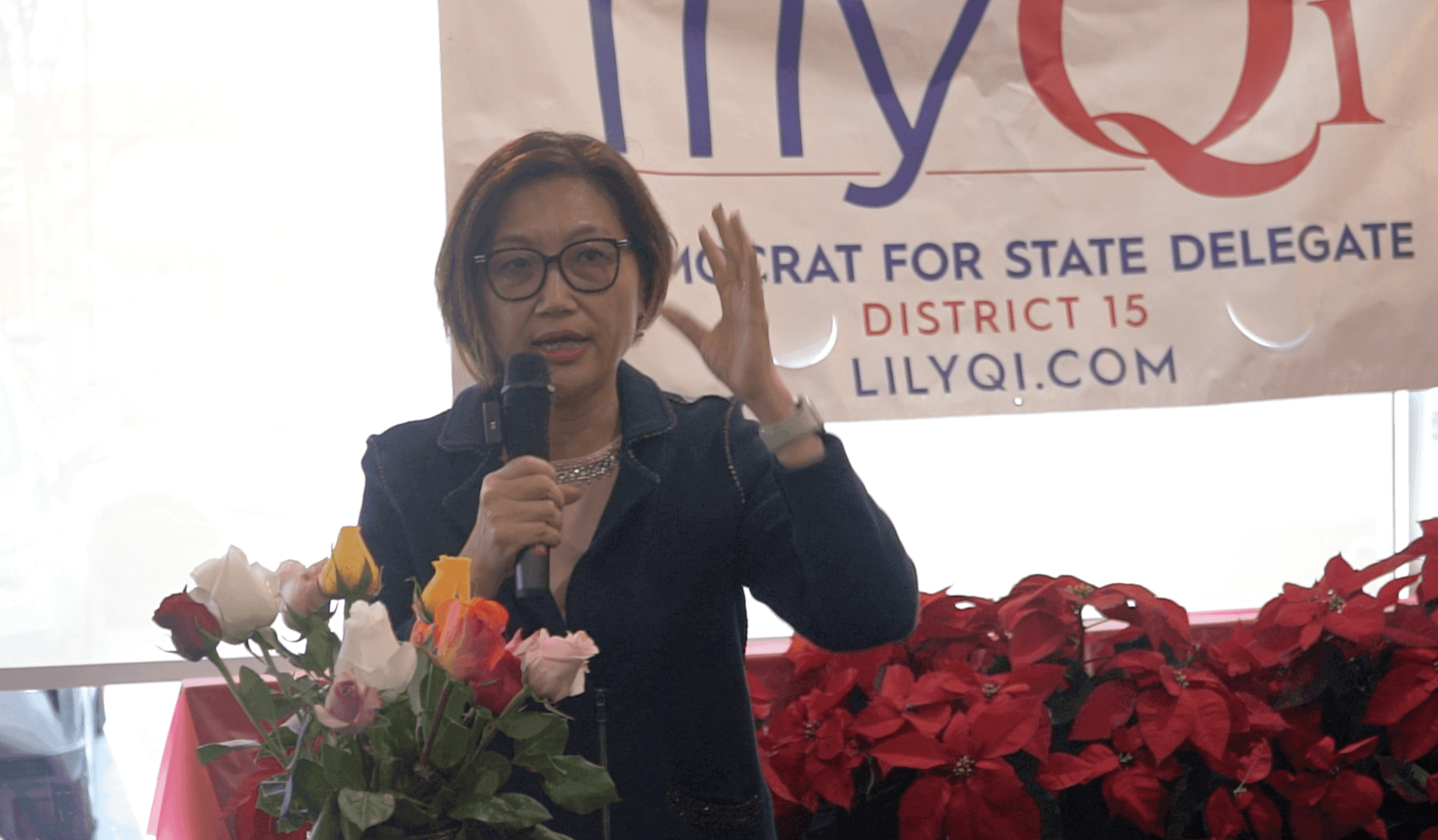Asian Marylanders Make a Difference in Howard County Board of Education Elections

 John Gao
John GaoAlthough the overall turnout was around 25% in Howard County, Maryland’s primary election, Asian Americans showed increased engagement, continuing the trend seen in recent election cycles.
Compared to presidential and congressional races, Asian Marylanders show more interest in local office races, such as those for the Board of Education. Driven by a vision for educational excellence and fiscal responsibility, two out of three candidates in the primary election of Howard County School District One were first-generation Asian American immigrants. At the same time, AAPI residents actively participated in campaigns by volunteering to help candidates who shared common values.
Asian American voters comprise over one-quarter of Howard County's voting population. Education is one of the top priorities for most Asian voters, as many moved to the county due to their high regard for the school system.
In Howard County’s District One, Andre Gao, a first-generation Chinese immigrant and economics research manager, won over 30% of the vote and came in second. He was the fourth Chinese-American to run for a position on the Board of Education, including current state delegate Chao Wu.
Gao said several concerning issues in Howard County drove his decision to run. These included a mismanaged budget, cuts to music and GT programs, and problems his children faced due to redistricting and overcrowded schools. These concerns echoed those of many AAPI voters, who became dedicated volunteers for Gao’s campaign.
Looking to the general election, Gao said that he wanted to ensure that the voters “get [a] chance to know me as the BOE candidate, to learn my priorities, my qualifications, my dedication,” and win over the other 22% of the voters who did not vote for Meg Ricks, the current front-runner in the race, who received over 48% of the votes in the primary election.
Pravin Ponnuri, a first-generation Indian immigrant and a former member of the Howard County AAPI Working Group, received 22% of the votes Gao mentioned. Though he lost the Board of Education race, Ponnuri remains committed to serving the AAPI community.
“It’s not about me, you, or anyone else winning or losing. It’s about the ideas we come up with,” said Ponnuri. He expressed pride in his campaign's community involvement, stating, “It’s all about trying to get the community involved.” Ponnuri emphasized the importance of Asian Americans engaging in politics due to the significant impact of government on everyday life, including education.
“If there is something important that we need, we have to do it ourselves and be involved.” Ponnuri expressed his shared values with Gao and added that he hoped candidates could win support based on their ideas and merits rather than their ethnicity.
There were no Asian American candidates in District 4 this year. However, the AAPI community continued to make its voices heard by supporting candidates who shared similar values.
After Julie Kaplan decided to run for the Board of Education in Howard County District Four, Jean Xu, the founder of the Chinese American Parent Association of Howard County and an active community leader in the Chinese American community in Howard County, was one of the first people she reached out to.
“I was personally inspired by a variety of communities, such as the Asian community. We wanted the same thing for our children: a positive academic experience,” Kaplan said. The AAPI community and she shared common values in education, according to Kaplan. She expressed her gratitude for the large number of AAPI volunteers who turned out for our campaign, with almost 90 Chinese-American volunteers.

As the general election season starts, all remaining candidates will seize the opportunity to win the now-undecided voters who can either make or break their chances of victory. Asian Americans, with its sizable population and deep concerns about education, will continue to play a pivotal role in the final results.





